New Delhi, January 18, 2024: The Bajaj Foundation inaugurated their first Youth Eco Summit at the Siri Fort Auditorium with over 200 Delhi-NCR schools, youth leaders, environmentalists, and policymakers against the escalating global challenge posed by e-waste. The summit, held under the theme of building awareness towards sustainable e-waste management was endorsed by renowned entities such as the United Nations, Ministry of Electronics and IT, MoEF, TERI, TECNOMobiles, and the Kiran Nadar Museum of Arts.
Emphasising the role of youth and students in managing e-waste, Mr Pankaj Bajaj, Founder, Bajaj Foundation, said, "Bajaj Foundation has been working towards humanitarian issues for many years, and now we are focusing on environmental aspects to create a better world. Students are the eco-warriors the world is waiting for to build a better tomorrow. Their innovative ideas and commitment are crucial for mitigating the global e-waste crisis and shaping a more sustainable future."
Discussing the future prospects of the Youth Eco Summit, he added, "We are enthusiastic about building a brighter and more harmonious world, with an increasing number of youth participants participating each year to grow the summit. The remarkable response we have received this year is commendable, and we aspire to elevate it to a national level in the coming years."
Speaking about the severity of the global e-waste problem, Mr. Darrin Farrant, Director of the United Nations Information Centre, said that e-waste is a growing problem all around the world and it is only getting worse. Piles of discarded computers, phones, televisions, and other technology are creating mountains of toxic waste. The UN is bringing countries, producers, and consumers together to try to beat back the tide of waste worldwide and make our use of electronics more sustainable.
The key highlight of the summit was the presence of actor and humanitarian Sonu Sood, who also participated in a panel discussion, "One World, One Family: Community, Industry, Government", along with Mr. Arijit Talapatra, CEO of TECNO Mobiles. The panel discussion hosted by Mr. Pankaj Bajaj, emphasised the importance of spreading conscious education and awareness for responsible e-waste management, besides accentuating the collaborative effort needed to achieve this.
Stressing on the collective responsibility of managing e-waste, Mr. Arijit Talapatra, CEO of TECNO Mobiles said, “We are proud to contribute to the Youth Eco Summit and our long-standing meaningful association with the Bajaj Foundation. Together, we recognize the vital importance of supporting sustainability. We are glad to be able to connect with the young students and recognize that reaching out to the youth is a necessity, as they represent the future. We believe in constant evolution and education, and that all small steps matter. This special intervention represents a pivotal step in our mission to make a positive impact on people's lives and the environment.”
Another panel discussion on "Decoding E-Waste and Its Environmental Impact" moderated by Youth Environmentalist Mr. Abhiir Bhalla, featured key stakeholders such as Mr. Aashish Saurakhia, Director of Public Policy, India Cellular & Electronics Association, Dr. Suneel Pandey, Director of TERI, and Dr. Harveen Kaur, Government Advisory, and Mr. Nitin Pramod, Indian Foreign Service Officer, GOI. The discussion highlighted the significance of robust regulations like Extended Producer Responsibility (EPR) and Restriction of Hazardous Substances (ROHS) in tackling the e-waste challenge. By incentivizing manufacturers to take accountability for the entire lifecycle of electronic products, EPR creates a closed-loop system that minimizes environmental impact. Similarly, ROHS restricts the use of harmful materials in electronics, thus, contributing to easier recycling.
Furthermore, a Young Voices Panel Discussion, featuring students from 11 schools in Delhi-NCR, added an insightful perspective to the summit. These Young changemakers of tomorrow presented solutions for e-waste management, thereby enhancing the overall perspective of the event.
India, as the world's third-largest producer of e-waste, faces a critical challenge with electronic waste surging from 700,000 tonnes in FY18 to 1.6 million tonnes in FY22. The first Youth Eco Summit served as a powerful platform for empowering young minds with knowledge to actively contribute to sustainable e-waste management, ecological restoration, and environmental impact.




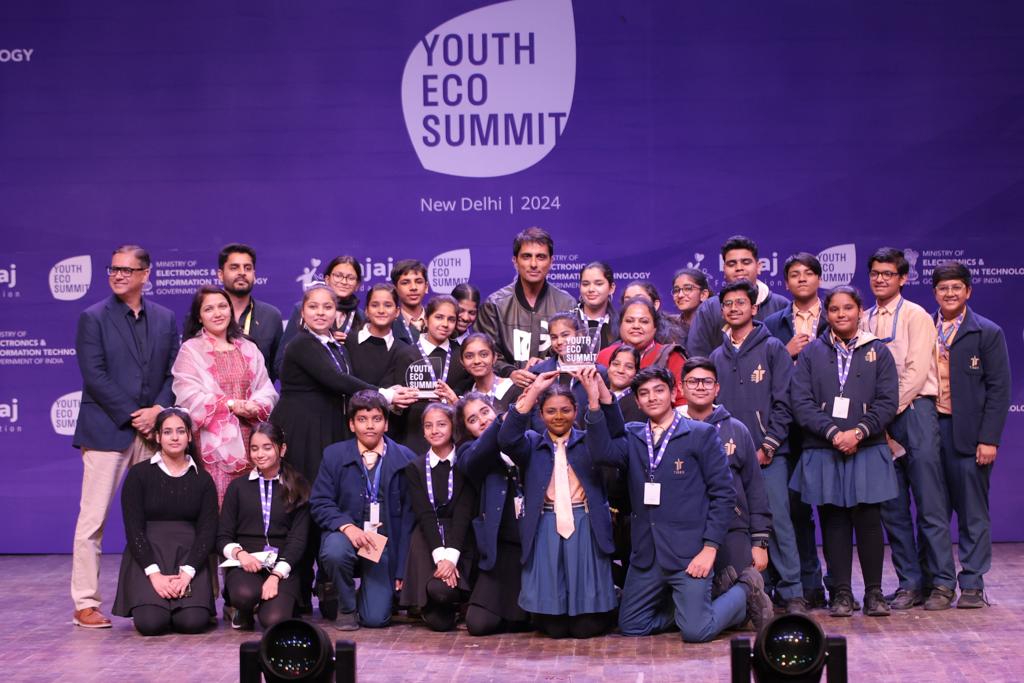


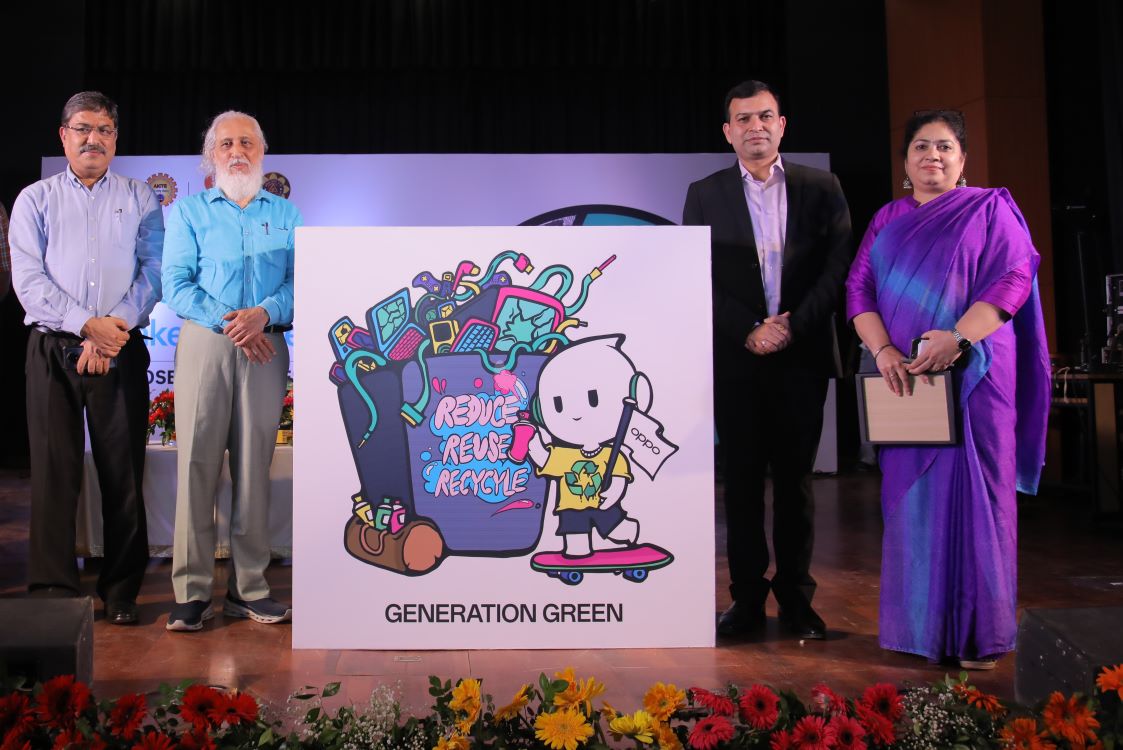

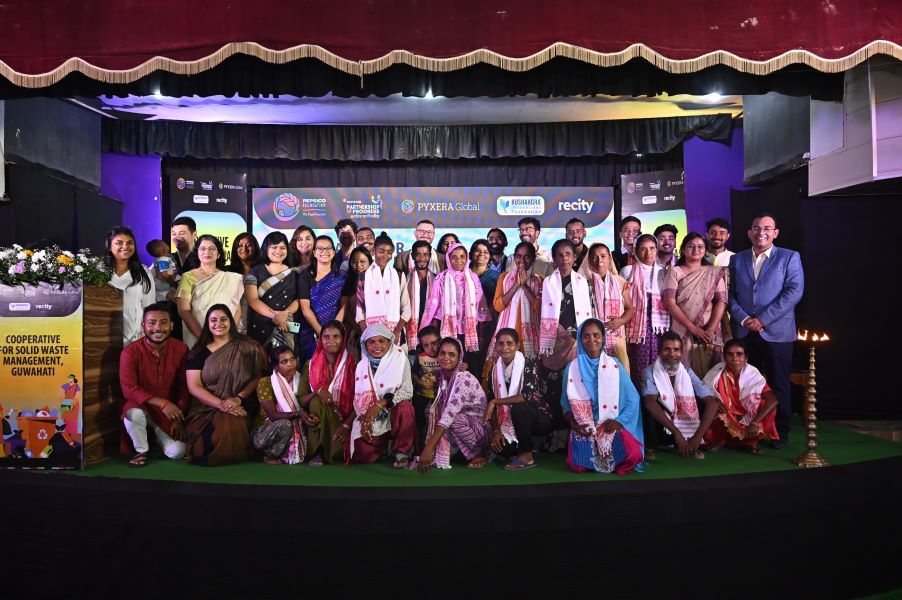
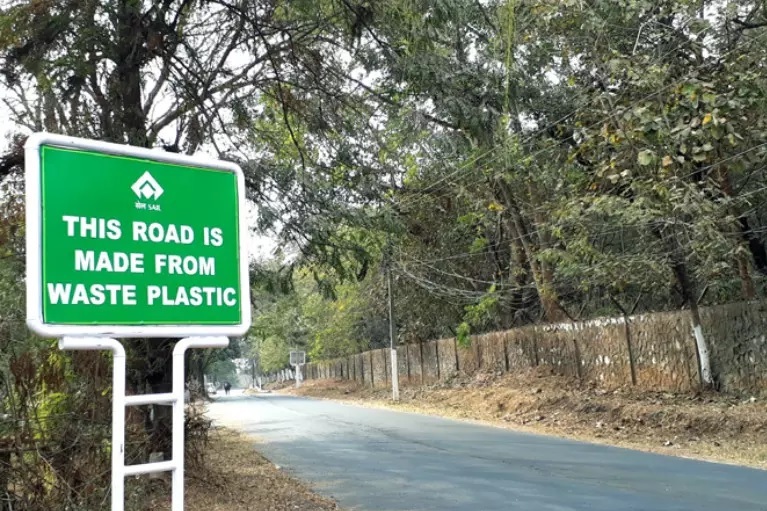
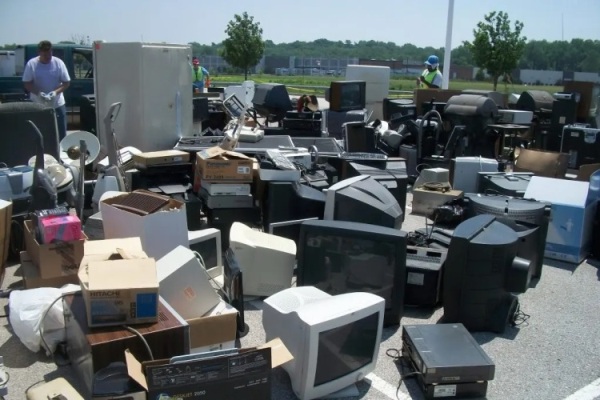
.jpg)








